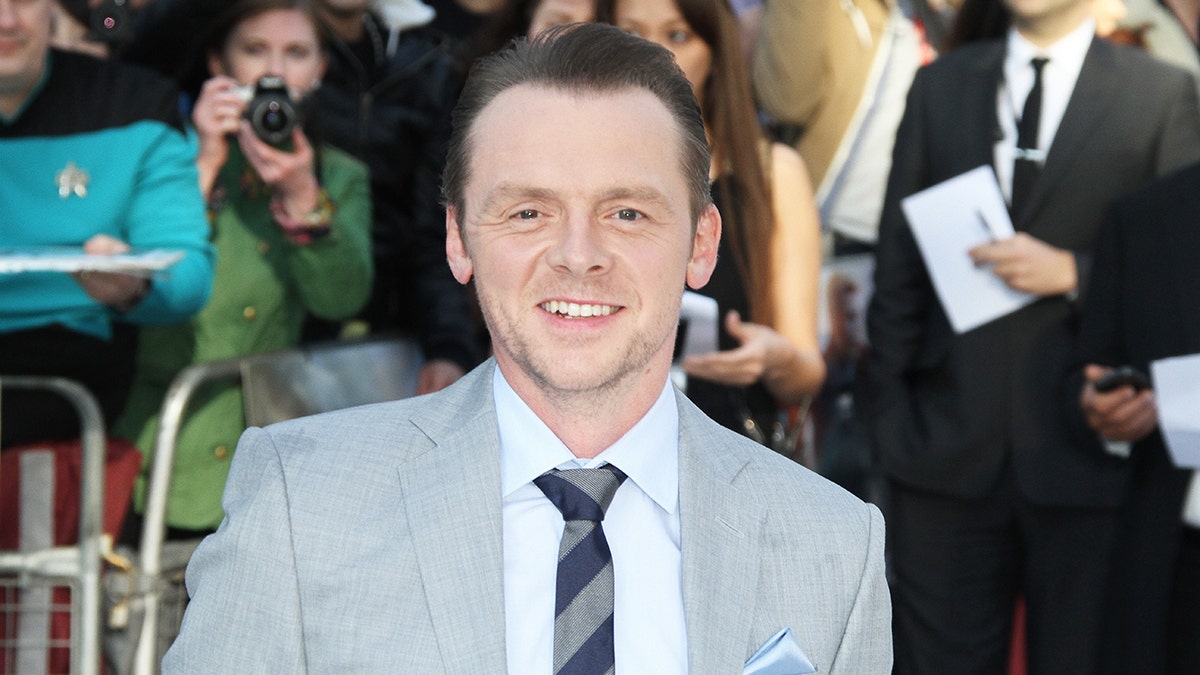
Simon Pegg recently revealed his previous struggles with alcoholism and depression. (X17online.com)
Simon Pegg, the man behind some of nerd culture’s best projects from the past two decades, recently opened up about his struggles with depression, alcoholism and rehab.
Speaking in a lengthy interview with The Guardian, the “Star Trek” actor, 48, revealed that he underwent a long and difficult struggle with depression that turned into a serious drinking problem. He said that his issues began when he was 18 but started to become a real problem in 2005. The star says things hit a breaking point while he was shooting the 2006 blockbuster “Mission Impossible III.”
“When I watch that film back, I can see where I was then, which was fairly lost, and unhappy, and an alcoholic,” he said, noting that he marks that as the beginning of his “crisis years.”
However, despite losing control of his drinking, the star says that his skills as an actor allowed him to hide his behavior not just from the public, but close friends and family.
“One thing [addiction] does is make you clever at not giving anything away. People think junkies and alcoholics are slovenly, unmotivated people. They’re not – they are incredibly organized. They can nip out for a quick shot of whisky and you wouldn’t know they have gone. It’s as if … you are micro-managed by it,” he said. “But eventually the signs are too obvious. You have taken the dog for one too many walks.”
Pegg hoped that the birth of his daughter, Matilda, would set his life straight. Unfortunately, he was surprised to see that it had little effect.
“Because it can’t. Nothing can, other than a dedicated approach, whether that’s therapy or medication, or whatever,” he shared.
It wasn’t until he disappeared for four days during Comic-Con while promoting his 2011 film “Paul” that he entered rehab, which he says finally saved his life. The timing also coincided with the filming of his “Mission Impossible III” follow-up, “Mission Impossible: Ghost Protocol.”
“We always laugh about it when we watch the movie. Try it! You’ll be like: ‘F---, he’s got cheekbones suddenly!’”
The star also revealed the great lengths he went to in order to keep his addiction and subsequent recovery out of the media. He admits to going as far as to obtain a court order to stop stories of his recovery from getting out after reporters allegedly called the place he was getting treatment pretending to be his mother.
“I’m not ashamed of what happened. And I think if anyone finds any relationship to it, then it might motivate them to get well. But I am not proud of it either – I don’t think it’s cool, like I was Mr Rock’n’roll, blackout and all that s---. It wasn’t, it was just terrible.”





















